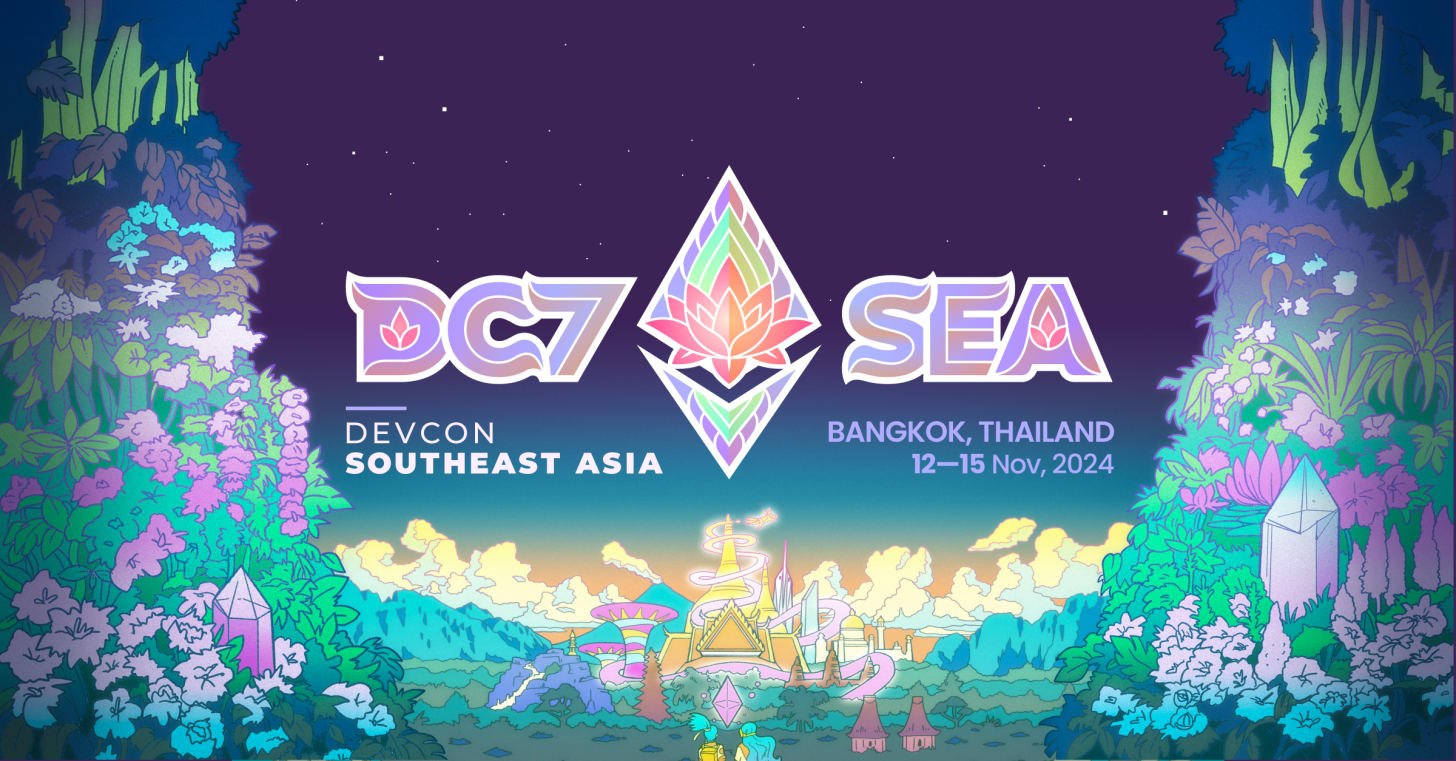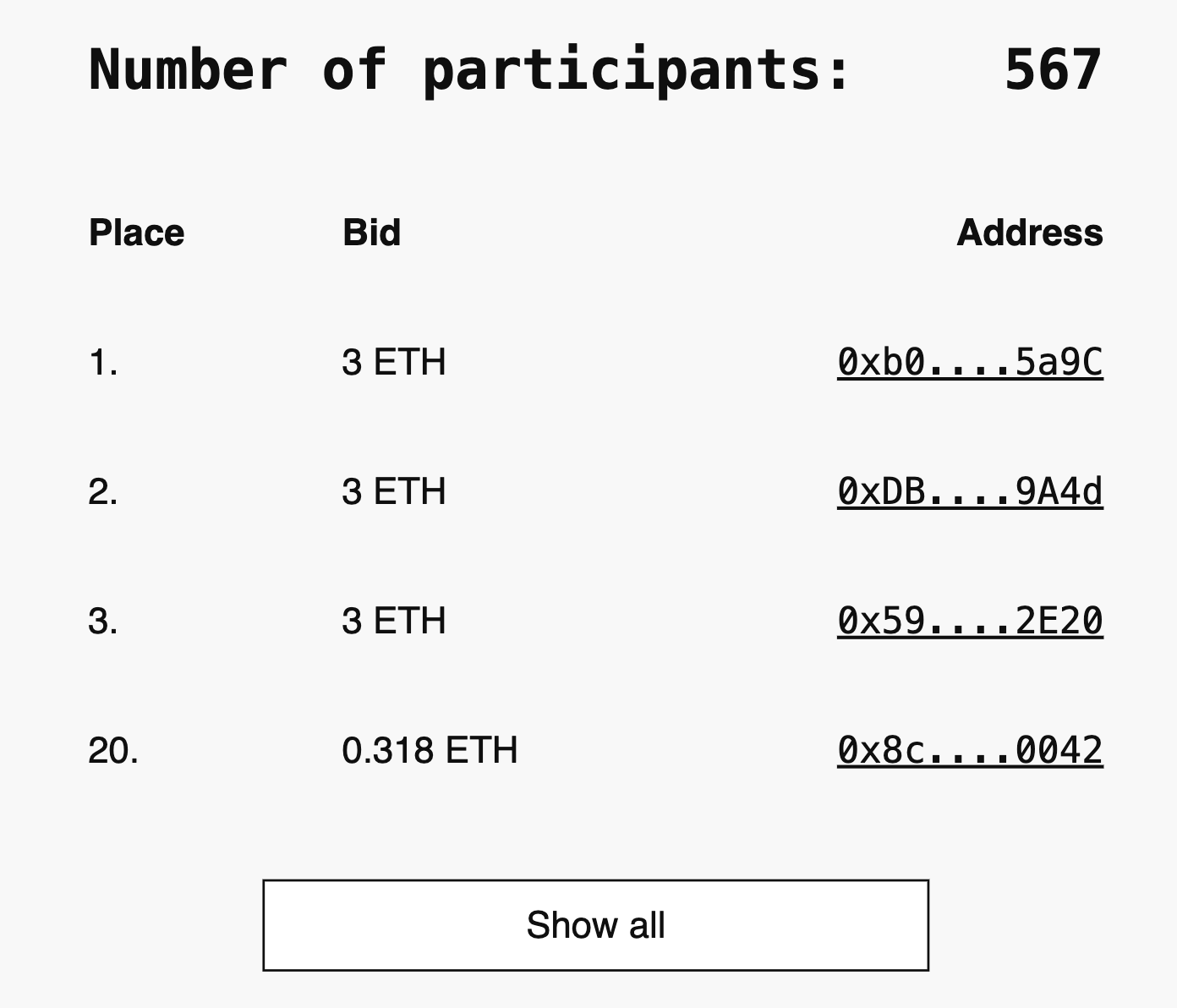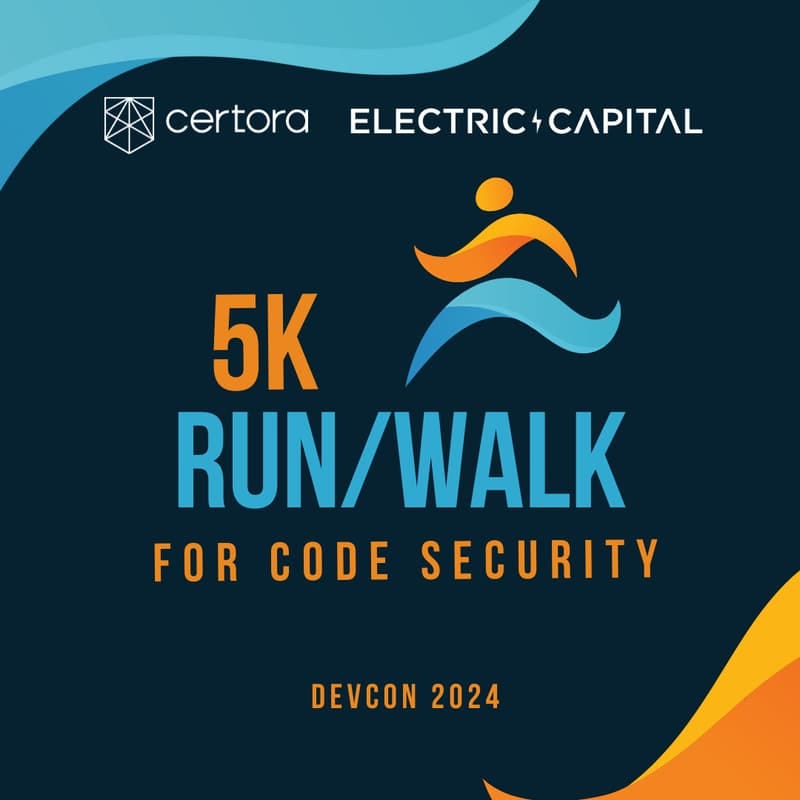GM,
This Halloween, our house is especially festive. Outside, a typhoon is raging, and inside, our baby’s cries add to the natural holiday ambiance 🎃 Let’s dive in.
Next weekend, I'll be heading to Bangkok for the Ethereum Developer Conference, Devcon7. Over the past few days, my anticipation for this event has grown from excitement to serious excitement! I recently uncovered a lot of intriguing side events to join. One evening, as I was submitting registrations, I was eagerly sharing with my family: “They even have a morning run! Sign me up!”
This made me wonder—has Devcon always been this much fun? If so, it’s a shame to have missed it all these years. I dug into Devcon’s history and discovered it’s not exactly an event you can just sign up for on a whim. Tickets are notoriously hard to get because the demand is immense each year. In response, the Ethereum Foundation, as the organizing body, has come up with some creative mechanisms to prevent ticket scalping while also balancing accessibility for all. Let’s start with Devcon’s history.
Devcon
Devcon, short for Developer Conference, is the Ethereum Developer Conference, now in its 8th iteration. Engineers often count from zero, so the first conference was Devcon0, making this one Devcon7. But Devcon isn’t merely a gathering of tech enthusiasts; it’s an event celebrating achievements and coordinating Ethereum’s future development directions.
To understand what Devcon aims to celebrate, let’s rewind to 2014. Back then, when people talked about cryptocurrency, they were usually referring to BTC. Most other blockchains were “altcoins”—just copies of Bitcoin’s code with minimal modifications. Ethereum also carried the altcoin label at first. Even in 2024, some media outlets still refer to ETH as an altcoin, a lingering “cultural relic” of that time.
Many people regarded BTC as the one true original and were reluctant to trade it. But in July 2014, the Ethereum development team announced a fundraising campaign, offering 2,000 ETH in exchange for 1 BTC. This offer was met with skepticism; people scoffed, saying, “Who would trade gold for thin air?” It’s hard to blame investors for being wary since, at the time, ETH was little more than a concept, barely more tangible than “air.” As documented in The Infinite Machine:
When investors sent BTC to the EthSuisse wallet, they didn’t immediately receive ETH in return. Instead, they were given an Ethereum wallet address and private key, and had to wait until the Ethereum blockchain launched to receive their ETH.
In 2014, the Ethereum blockchain was still in development, so there was no ETH available to distribute. Nevertheless, the Ethereum team successfully raised 31,591 BTC in just 42 days, worth around $1.84 million USD (roughly 59 million TWD at the time). With this BTC, the Ethereum team was able to pay developer salaries and, in November of that year, held Devcon0 in Berlin, Germany. It was both a celebration and a way to align on Ethereum’s technical future. No wonder the Ethereum Foundation now describes Devcon as:
Devcon represents a reunion of global Ethereum members—a platform to celebrate successes and set the direction for future development. It brings the Ethereum community from around the world together in a single venue...It’s a conference for developers, researchers, thinkers, and makers. It’s an in-depth introduction for new members, a global gathering for seasoned ones, and a source of energy and creativity for everyone involved.
Devcon0 had very few attendees—so few, in fact, that every participant had the chance to introduce themselves on stage. Today, Devcon’s scale is incomparable. People from all over the world hope to experience this grand event firsthand, share their devotion to Ethereum, and connect face-to-face with other developers.
Given limited venue space, the event organizers’ most straightforward approach would be to control attendance by pricing. However, if tickets were purely allocated to the highest bidders, Devcon could lose its essence, potentially becoming an event only accessible to the wealthy and limiting the diversity of discussions. Therefore, starting from Devcon5, the Ethereum Foundation introduced a highly experimental “raffle-auction” mechanism, reserving some tickets for the general public and promoting a more inclusive system.
The Raffle-Auction
This year, a Devcon7 ticket costs $599—no small sum. There are three main ways to purchase a ticket:
General sale
Discount application
Raffle-auction
The general sale is the most straightforward: tickets are released in batches at $599, and it’s first-come, first-served, like trying to snag a concert ticket. However, if you’re a builder, researcher, or student in the Ethereum ecosystem, you can apply for a discount ticket—no rushing required, just fill out the application form. Most unique is the raffle-auction, where the Ethereum Foundation has allocated 204 builder tickets (priced at 0.08 ETH) for this experimental process. Let me explain the rules.
The 204 tickets are divided into two pools: a raffle pool and an auction pool. The raffle pool contains 184 tickets. To enter, participants place a bid above 0.08 ETH. If you’re lucky and win the raffle, you’ll get a ticket for 0.08 ETH, and if you don’t, your bid is fully refunded.
If you prefer not to rely solely on luck, you can increase your chances by bidding higher. The remaining 20 tickets in the auction pool go to the top 20 highest bidders. These top 20 bidders must purchase their tickets at their bid prices, with any excess funds used to support the Devcon Scholars Program. If two bidders offer the same amount, the ticket goes to whoever placed their bid earlier.
For example, if you bid 0.3 ETH, which is above the 0.08 ETH raffle threshold but doesn’t make the top 20, you remain in the raffle pool and try your luck. If you win, you’ll get a ticket for 0.08 ETH, and the remaining 0.22 ETH is refunded. If you lose, your full 0.3 ETH is returned. Suppose 0.3 ETH is the 20th highest bid but someone else also bid that amount. In that case, the ticket goes to the person who bid earlier.
The beauty of this system lies in the fact that participants’ money is never at risk: you either buy a ticket or get your money back, making it a zero-risk process. Rational participants who want a ticket should bid early, ideally close to their maximum willingness to pay. If they’re in the top 20, they can buy the ticket at their preferred price.
To add excitement, the Ethereum Foundation has included a “Golden Ticket” in the raffle pool. Out of the 184 raffle winners, one lucky person will get a full refund, effectively receiving a ticket for free.
The table below shows the raffle-auction statistics for this year. A total of 567 people participated, with the highest bid reaching 3 ETH. To be in the top 20, you needed to bid at least 0.318 ETH. With ETH trading above $3,000 during the auction, those willing to spend for a ticket paid significantly more than the standard $599 price. This result aligns with the Ethereum Foundation’s goal of using the premium bids to support other Devcon initiatives.
This is a fascinating ticketing mechanism that effectively draws additional funding from wealthier participants. Although the Ethereum Foundation only allocated a portion of tickets for this experiment, it shows promising new ways to manage high-demand events, potentially sparking ideas for addressing the recent ticket scalping issues in concert ticketing.
However, this mechanism likely can’t be directly applied to concerts, as the goals of each event differ significantly. The Ethereum Foundation's raffle-auction approach ensures greater diversity among attendees, whereas diversity is probably not a priority for concert organizers.
While introducing a new system can limit scalping and even channel profits from resales back to the organizers, scalpers could still exploit the raffle pool by entering with numerous accounts, acquiring tickets at low prices, and reselling at a premium. Therefore, the Ethereum Foundation will require on-site identity verification (though surprisingly, without zero-knowledge proofs!1) to ensure that winners are indeed the attendees.
Despite the competitive ticketing process for Devcon, it was actually the wealth of side events that inspired me to write this piece.
Side Events
The event platform Luma has a dedicated Devcon category, listing all the side events taking place over the next few weeks during Devcon. There’s a wide range of activities: morning runs, yoga, breakfast gatherings, and venture firms renting out cafes to chat with developers. Not to mention countless product launch events.
After some careful selection, I prioritized experiences that are completely unrelated to work—lifestyle-focused activities like exercise and social gatherings, and product showcases last 😂. Every morning in Bangkok, I’ll be attending a group run. Each organizer has put a lot of thought into these events: some will have local guides leading the run, others have booked out cafes to host a breakfast afterward, and some founders double as fitness coaches.
Although these activities are unrelated to work, a low-pressure environment actually fosters the most genuine connections. After all, these people are flying in from all over the world to attend Devcon—what else would they want to talk about? Some teams choose not to host formal events, instead offering a space where people can simply connect and enjoy refreshments, inviting you to meet new friends there.
Personally, I attend the fewest presentations, since most content can be found on YouTube afterward. Major announcements tend to spread quickly through multiple sources, so I don’t feel like I miss anything significant by watching Devcon online in previous years.
This time, though, I’m going to Devcon for the experience of being there in person. It’s like when Blocktrend members come to our meetups—to see who’s part of the community. Even if there’s a big announcement, the thing I most want to see is everyone’s immediate reaction. That’s an entirely new experience you can’t get through a YouTube screen!
Blocktrend is an independent media platform sustained by reader subscription fees. If you find Blocktrend's articles valuable, we welcome you to share this piece. You can also join discussions on our member-created Discord or collect the Writing NFT to include this article in your Web3 records.
Furthermore, please consider recommending Blocktrend to your friends and family. If you successfully refer a friend who subscribes, you'll receive a complimentary one-month extension of your membership. You can find past issues in the article list. As readers often inquire about referral codes, I have compiled them on a dedicated page for your convenience. Feel free to make use of them.






